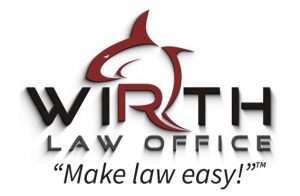 Discovery, the exchange of information in any court case in Oklahoma, is governed by statutory and case law. You as a defendant in a criminal case are entitled to all the evidence that the prosecution has against you. Also, you entitled to all the evidence the state has that tends to negate your guilt. This is called exculpatory evidence. They are required to turn it all over to the defense. But this doesn’t always happen as it should. That is why a discovery hearing is important.
Discovery, the exchange of information in any court case in Oklahoma, is governed by statutory and case law. You as a defendant in a criminal case are entitled to all the evidence that the prosecution has against you. Also, you entitled to all the evidence the state has that tends to negate your guilt. This is called exculpatory evidence. They are required to turn it all over to the defense. But this doesn’t always happen as it should. That is why a discovery hearing is important.
Discovery In A Criminal Case
Discovery usually begins early in a criminal case. Sometimes, it begins before a status conference; other times, it happens after.
Let’s say your attorney starts to review the evidence that has been turned over to them.
Your attorney reviews the police report and finds that one of the officer’s statements is missing, some pages of the report are missing, or witness statements are missing. Or there should have been some video footage either from a body cam or a dashcam, but none was produced. All of this should have been turned over to your attorney, but it wasn’t.
Your Okmulgee criminal defense lawyer addresses the situation with the prosecution. Sometimes, the prosecution turns over missing information. Sometimes, they do not.
Your attorney needs this information to build defenses.
And like most things, one thing often leads to another. A piece of information discovered in one document could lead to other discoverable and valuable information.
Defense attorneys typically use police reports and other information turned over by the prosecution as a launching point for other subpoenas and other requests for information they feel should be turned over to the defense.
The Discovery Hearing: An Allen Hearing
All of this brings us to the Allen hearing. An Allen hearing is based on a court case — Oklahoma Court of Criminal Appeals Allen v. State, 1997 OK CR 44. In an Allen hearing, the court determines whether all of the discoverable information has been properly exchanged.
Often, arguments take place between the defense and prosecution over exculpatory evidence.
Someone else confesses, but the prosecution doesn’t give that confession any weight and doesn’t turn it over to the defense. Or the prosecution has a video of a person at the crime scene. The video shows grainy images that may or may not be the defendant. The prosecution doesn’t intend to use it because of the grainy image and doesn’t turn it over.
A Discovery Hearing Can Lead To Dismissal
The Allen hearing is the battleground for missing evidence. The court can do a number of things at the hearing if it feels that the missing documents should be turned over. It can order the prosecution to turn over the evidence. If the court does that, it will schedule a follow-up hearing date to make sure the prosecution has turned the evidence over to the defense.
The court can also prohibit the prosecution from introducing certain witnesses or evidence related to their omission. The court can even dismiss the charges or declare a mistrial.
The Allen hearing may occur midway through the criminal process or it may occur as late as 10 days before trial. It really is an important hearing.
Judges hate to dismiss cases based on the prosecution’s lack of compliance with a discovery order, but even sanctions against the prosecution can be helpful. Sometimes, the prosecution is precluded from introducing key evidence at trial; that can lead to a dismissal or a verdict in the defense’s favor.
If there is a moment to have an experienced misdemeanor defense lawyer represent you in a criminal case, this is one of the most important moments. The outcome of an Allen hearing makes a big difference in criminal defense cases. If there’s a discovery issue going on in your case, you need to talk to an attorney about your specific circumstances.
Low-cost Consultation With An Okmulgee Lawyer
Call 918-756-9600 now for a initial consultation with a qualified Okmulgee attorney at Wirth Law Office – Okmulgee.
Or, enter your legal question or concern in the firm at the top right of this page, and one of our attorneys will email or call you.








